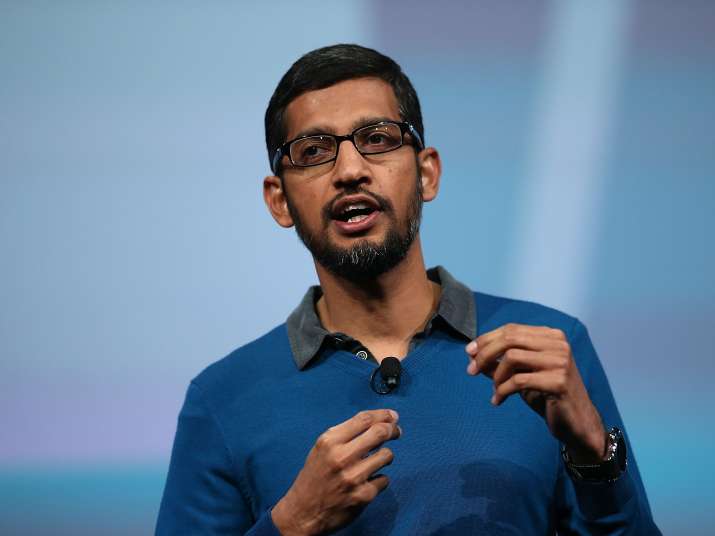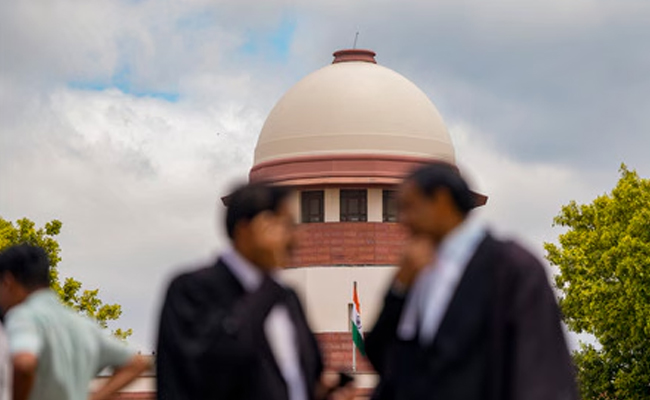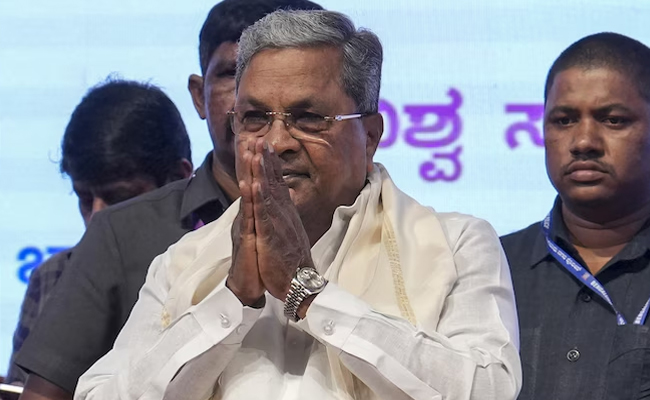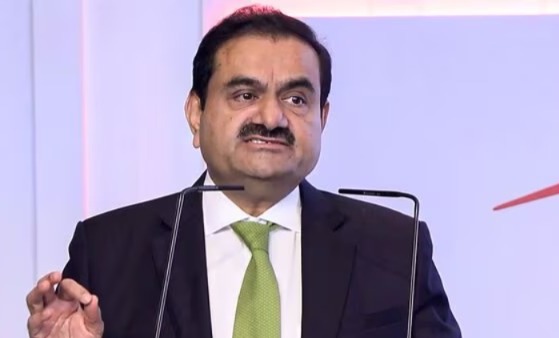New Delhi: The Competition Commission of India (CCI) on Monday ordered a detailed probe against internet giant Google for alleged unfair business practices with respect to Google Pay as well as Google Play's payment system.
Google Pay is a popular digital payments platform while Google Play is the app store on its Android ecosystem.
"... the Commission is of the prima facie view that the Opposite Parties have contravened various provisions of Section 4 of the Act... These aspects warrant a detailed investigation," it said in a 39-page order.
The watchdog has ordered a detailed probe by its Director General (DG), which is the investigation arm, for alleged anti-competitive practices with respect to Google Pay.
Section 4 of the Competition Act pertains to the abuse of a dominant market position.
The Commission is of the prima facie view that the market for apps facilitating payment through the Unified Payments Interface (UPI) appears to be a distinct relevant market for the assessment of allegations in the present matter, the order said.
According to the regulator, it is of "the prima facie view that said the conduct of Google amounts to imposition of unfair and discriminatory condition, denial of market access for competing apps of Google Pay and leveraging on the part of Google, in terms of different provisions of Section 4(2) of the Act."
Indian app developers have been voicing concerns over Google's move to charge a 30 percent commission on paid apps and In-App Purchases (IAPs). Many such developers have said that Google cannot force domestic app developers/ owners to sell digital services by compulsory use of its billing system.
"We are pleased that the CCI has rejected several claims made by the anonymous complainant," a Google spokesperson said in a late evening statement.
On the remaining concerns, the spokesperson said it was confident that the CCI will find that GPay operates in an extremely competitive environment, and owes its success to its ability to offer consumers a simple and secure payment experience.
"Secondly, numerous distribution channels exist for apps on the Android platform; Play is not the only app distribution option for Android. Users choose Google Play because we ensure a safe, secure, and seamless experience.
"Play's billing system is a fundamental part of meeting this user expectation and helps ensure our continued investment in the many important things needed to make developers successful," the spokesperson added.
On the issue of mandatory use of Google Play's payment system for paid apps and In-App Purchases (IAPs), CCI said it was of the "prima facie view that mandatory use of application store's payment system for paid apps & in-app purchases restricts the choice available to the app developers to select a payment processing system of their choice especially considering when Google charges a commission of 30 percent (15 percent in certain cases) for all app purchases and IAPs."
Considering that Play is the dominant source of downloading apps in the Android OS (90 percent of the downloads) and its condition requiring the use of the application store's payment system for paid apps and IAPs, it appears that Google controls the significant volume of payments processed in this market, the order said.
"The resultant market power being enjoyed by Google due to its grip over the Android ecosystem apparently resulted in 'allegedly' high commission fee of 30 percent," it added.
According to the watchdog, it appears that such an allegedly high fee would increase the cost of Google's competitors and thus might affect their competitiveness vis-a-vis Google's own verticals.
"Such a policy of the application store may disadvantage its competitors in the downstream markets, such as music streaming, e-books/ audiobooks, etc. If the application developers, in response, raise their subscription fees to offset these costs or remove/ reduce premium/ paid subscription offers for users, it may affect user experience, cost, and choice.
"Such conditions imposed by app stores limit the ability of the app developers to offer payment processing of their choice to the users for app purchases as well as IAPs... the Commission is of prima facie view that imposition of such condition is unfair in terms of Section 4(2)(a) of the Act," the regulator said.
Various pleas of Google-like offering a secured system and necessity of Play's billing system can be appropriately examined during investigation, it added.
Google Pay has been integrated with 'intent flow' methodology whereas other UPI apps can be used through 'collect flow' methodology. Both flows involve the user transitioning from Play to the UPI payment app and back again.
"This transition is automated in the intent flow, whereas the same is required to be manually undertaken by users in the collect flow. Based on the above, prima facie it appears that user experience while using Google Pay would be different/ better as compared to using other UPI based apps.
"This difference has the potential to shift users towards adopting Google Pay over other UPI based payment apps," CCI said, adding that it becomes critical to examine whether such difference in the process favored Google Pay to the disadvantage of other competing apps.
The probe has been ordered against five entities -- Alphabet Inc, Google LLC, Google Ireland Ltd, Google India Pvt Ltd, and Google India Digital Services Pvt Ltd.
In 2018, CCI had penalized Google for anti-competitive practices in the Indian market for the online search.
Let the Truth be known. If you read VB and like VB, please be a VB Supporter and Help us deliver the Truth to one and all.
New Delhi: The Supreme Court on Monday directed that the petitions challenging the constitutional validity of the Waqf (Amendment) Act, 2025, be listed before a bench led by Justice B.R. Gavai. The decision was announced by Chief Justice of India (CJI) Sanjiv Khanna, who noted that Justice Khanna is nearing retirement and the matter requires an early hearing.
The case titled In Re: Waqf Amendment Act was heard by a bench comprising CJI Khanna, Justice Sanjay Kumar, and Justice K.V. Viswanathan. The CJI stated that although he had reviewed the counter-affidavit filed by the Union government and the rejoinders submitted by the petitioners, he did not wish to reserve judgment at the interim stage. With the consent of all parties, including Senior Advocates Kapil Sibal and A.M. Singhvi for the petitioners and Solicitor General Tushar Mehta for the Union, the matter was reassigned to Justice Gavai’s bench for hearing on May 15.
In previous hearings on April 16 and 17, the bench engaged in detailed discussions. Senior Advocate Kapil Sibal had raised strong objections to the omission of the ‘waqf by user’ provision, arguing that such waqfs — many centuries old — often lack formal registration documents. Solicitor General Mehta responded that the amendment was prospective and that registered waqf properties would not be affected.
The Court also took note of concerns about the inclusion of non-Muslim members in the Central Waqf Council and State Waqf Boards. CJI Khanna pointedly asked whether non-Hindus are similarly included in bodies overseeing Hindu religious endowments. In response to these concerns, the Court suggested interim directions to prevent any significant changes, including a proposal that only Muslims (barring ex-officio members) should serve on the Waqf Boards and Council. It also indicated that court-declared waqf properties should not be denotified during the pendency of the case.
The Union government, through SG Mehta, assured the Court that no fresh appointments would be made to the Waqf bodies and that the status of existing waqf lands would remain unaffected. These assurances were recorded by the Court.
The petitions, supported by a wide array of individuals and organisations including MPs from AIMIM, RJD, SP, TMC, CPI, DMK, the All India Muslim Personal Law Board, Jamiat Ulema-i-Hind, and others challenge multiple provisions of the Amendment Act.
Meanwhile, BJP-led state governments of Assam, Rajasthan, Chhattisgarh, Uttarakhand, Haryana, and Maharashtra have filed intervention applications supporting the amendment.
The matter will now be heard on May 15 by the bench led by Justice Gavai.




_vb_42.jpeg)
